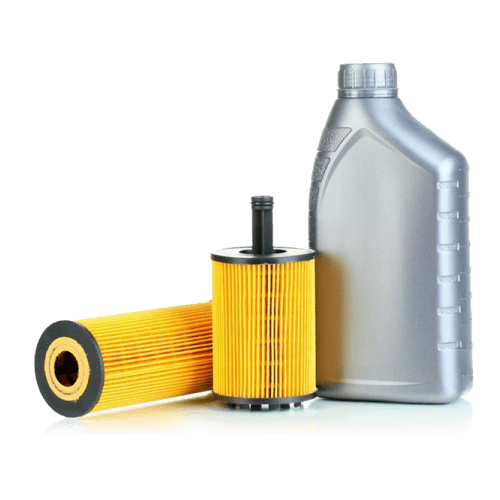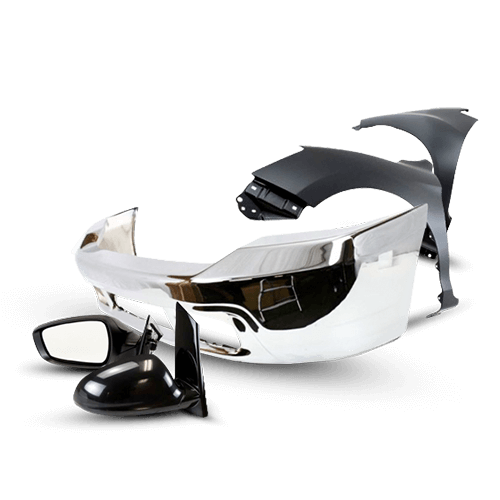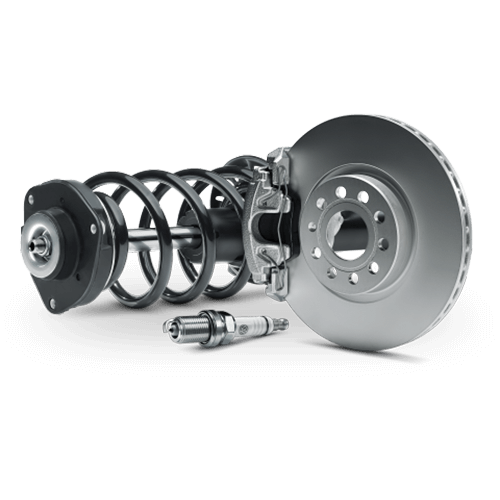
Ignition Coils and Spark Plugs: The Key to Unlocking Your Vehicle's Performance
As the heart of your vehicle's ignition system, ignition coils and spark plugs play a crucial role in ensuring optimal engine performance. Whether you're a seasoned mechanic or a car enthusiast, understanding the importance of these components and how to maintain them can make all the difference in keeping your ride running at its best.
In this comprehensive guide, we'll delve into the world of ignition coils and spark plugs, exploring their functions, types, and the signs of wear and tear. We'll also provide you with essential information on when and how to replace these vital parts, as well as offer guidance on choosing the right products for your vehicle.
Understanding Ignition Coils
Ignition coils are the unsung heroes of your car's engine, responsible for transforming the low-voltage current from the battery into the high-voltage spark that ignites the air-fuel mixture in your engine's cylinders. Without properly functioning ignition coils, your engine would be unable to start or run efficiently.
The Function of Ignition Coils
Ignition coils work by using the principle of electromagnetic induction to generate the high-voltage spark needed to ignite the fuel in your engine's cylinders. When the vehicle's ignition system is activated, the coil's primary winding receives a low-voltage current from the battery, which in turn induces a high-voltage current in the secondary winding. This high-voltage current is then delivered to the spark plugs, creating the powerful spark that ignites the air-fuel mixture.
Types of Ignition Coils
There are several different types of ignition coils, each designed to meet the specific needs of different engine configurations. The most common types include:
- Conventional Ignition Coils: These are the traditional coils that have been used in vehicles for decades, featuring a single secondary winding and a single spark plug.
- Coil-on-Plug (COP) Ignition Coils: These compact, individual coils are mounted directly on top of each spark plug, eliminating the need for high-voltage spark plug wires.
- Coil-Near-Plug (CNP) Ignition Coils: Similar to COP coils, these are mounted in close proximity to the spark plugs, but not directly on top of them.
- Waste Spark Ignition Coils: These coils fire two spark plugs simultaneously, with one plug firing during the compression stroke and the other during the exhaust stroke.
Symptoms of Failing Ignition Coils
Ignition coils can wear out over time, leading to a variety of performance issues. Some common signs of a failing ignition coil include:
- Rough idling or engine misfiring
- Decreased fuel efficiency
- Difficulty starting the engine
- Illumination of the check engine light
- Reduced engine power and acceleration
If you notice any of these symptoms, it's important to have your ignition coils inspected and replaced as needed to maintain optimal engine performance.
All About Spark Plugs
Spark plugs are the unsung heroes of your vehicle's ignition system, responsible for igniting the air-fuel mixture in each cylinder to power your engine. Understanding the role of spark plugs and how to maintain them is crucial for keeping your car running at its best.
The Role of Spark Plugs
Spark plugs are the final link in the ignition chain, receiving the high-voltage current from the ignition coils and using it to create a powerful spark that ignites the air-fuel mixture in the engine's cylinders. This controlled explosion is what generates the force that drives your vehicle's pistons and crankshaft, ultimately propelling your car forward.
Types of Spark Plugs
There are several different types of spark plugs, each designed to meet the specific needs of different engine configurations and driving conditions. Some of the most common types include:
- Copper Core Spark Plugs: These are the most basic and affordable type of spark plug, featuring a copper core and a steel shell.
- Platinum Spark Plugs: These plugs have a platinum tip that can last significantly longer than copper core plugs, making them a popular choice for modern engines.
- Iridium Spark Plugs: Iridium spark plugs offer even greater durability and performance than platinum plugs, with a finer electrode that can improve combustion efficiency.
- Double Platinum Spark Plugs: These plugs feature a platinum tip on both the center and ground electrodes, providing enhanced performance and longevity.
Symptoms of Worn Spark Plugs
Like ignition coils, spark plugs can wear out over time, leading to a variety of performance issues. Some common signs of worn spark plugs include:
- Decreased fuel efficiency
- Rough idling or engine misfiring
- Difficulty starting the engine
- Reduced engine power and acceleration
- Illumination of the check engine light
If you notice any of these symptoms, it's important to have your spark plugs inspected and replaced as needed to maintain optimal engine performance.
Replacement Essentials
Knowing when to replace your ignition coils and spark plugs, as well as how many you'll need, is crucial for keeping your vehicle running at its best. In this section, we'll provide you with the essential information you need to ensure a successful replacement.
When to Replace Ignition Coils and Spark Plugs
As a general rule, it's recommended to replace your ignition coils and spark plugs at the intervals specified in your vehicle's maintenance schedule. This can vary depending on the make, model, and year of your car, as well as the driving conditions you typically encounter.
For ignition coils, most manufacturers recommend replacement every 60,000 to 100,000 miles, or every 4 to 7 years. As for spark plugs, the recommended replacement interval is typically every 30,000 to 60,000 miles, or every 3 to 5 years.
It's important to note that these are just general guidelines, and your specific vehicle may have different requirements. Always refer to your owner's manual or consult with a professional mechanic to determine the optimal replacement schedule for your car.
How Many Ignition Coils and Spark Plugs Do You Need?
The number of ignition coils and spark plugs you'll need to replace will depend on the configuration of your vehicle's engine. Most cars and light-duty trucks have one ignition coil per cylinder, while some may have a single coil that serves multiple cylinders.
As for spark plugs, the number you'll need to replace will depend on the number of cylinders in your engine. For example, a 4-cylinder engine will require 4 spark plugs, while a 6-cylinder engine will need 6.
When purchasing replacement parts, it's always a good idea to consult your owner's manual or speak with a parts specialist to ensure you're getting the correct components for your specific vehicle.
Can You Replace Them Yourself?
In many cases, replacing ignition coils and spark plugs can be a relatively straightforward DIY project, especially for those with some basic mechanical experience. However, it's important to note that the specific process can vary depending on the make and model of your vehicle.
If you're comfortable working on your car and have access to the necessary tools and equipment, you can typically replace ignition coils and spark plugs yourself. Just be sure to follow the manufacturer's instructions carefully and take all necessary safety precautions.
On the other hand, if you're not confident in your mechanical abilities or don't have the proper tools, it's generally recommended to have a professional mechanic handle the replacement. This will ensure the job is done correctly and safely, and can help prevent any further damage to your vehicle.
Choosing the Right Parts
When it comes to replacing your ignition coils and spark plugs, it's essential to choose high-quality, reliable parts that are specifically designed for your vehicle. In this section, we'll provide you with the information you need to make an informed decision.
Where to Get Quality Ignition Coils and Spark Plugs
One of the best places to purchase quality ignition coils and spark plugs is Bestparts.ca, a leading online retailer of aftermarket auto parts in Canada. Bestparts.ca offers a wide selection of top-brand components, ensuring you get the right parts for your vehicle at competitive prices.
By shopping at Bestparts.ca, you can be confident that you're getting genuine, high-quality parts that meet or exceed the original equipment manufacturer (OEM) specifications. The website also provides detailed product information, customer reviews, and helpful guides to assist you in making the best choice for your car.
Best Brands in the Market
When it comes to ignition coils and spark plugs, there are several reputable brands that are known for their quality and performance. Some of the top brands to consider include:
- Bosch: A trusted name in the automotive industry, Bosch offers a wide range of ignition coils and spark plugs that are designed to deliver reliable performance and long-lasting durability.
- NGK: Known for their innovative spark plug technology, NGK is a leading manufacturer of high-quality ignition components that are used in many original equipment applications.
- Denso: A respected supplier of automotive parts, Denso produces ignition coils and spark plugs that are engineered to provide optimal engine performance and fuel efficiency.
- ACDelco: As the original equipment supplier for many General Motors vehicles, ACDelco is a reliable choice for replacement ignition components.
When selecting ignition coils and spark plugs, it's important to choose parts that are specifically designed for your vehicle's make, model, and year. This will ensure a proper fit and optimal performance.
Considerations When Selecting Parts
When choosing ignition coils and spark plugs, there are several factors to consider to ensure you're getting the right parts for your vehicle:
- Compatibility: Ensure the parts you're selecting are compatible with your vehicle's make, model, and year, as well as the engine configuration.
- Performance: Consider the type of spark plug (copper, platinum, iridium) and the ignition coil design (conventional, COP, CNP) that best suits your driving needs and engine specifications.
- Durability: Look for parts that are designed to withstand the rigors of your driving conditions and provide long-lasting performance.
- Warranty: Check the manufacturer's warranty to ensure you're getting a product that is backed by a reputable brand.
- Price: While quality is important, it's also essential to find parts that fit within your budget. Bestparts.ca offers competitive pricing on a wide range of ignition components.
By taking the time to carefully consider these factors, you can ensure you're getting the right ignition coils and spark plugs for your vehicle, helping to maintain optimal engine performance and fuel efficiency.
DIY Replacement Guide
If you're comfortable working on your vehicle and have the necessary tools and equipment, replacing your ignition coils and spark plugs can be a relatively straightforward DIY project. In this section, we'll provide you with a step-by-step guide to help you through the process.
Tools Required
Before you begin, make sure you have the following tools on hand:
- Spark plug socket or wrench
- Ignition coil removal tool (if applicable)
- Torque wrench
- Ratchet and socket set
- Dielectric grease (for spark plug installation)
- Cleaning supplies (such as a wire brush and brake cleaner)
Step-by-Step Replacement Process
- Prepare the Vehicle: Ensure the engine is cool and the vehicle is parked on a level surface. Disconnect the negative battery cable to prevent any electrical hazards.
- Access the Ignition Coils: Locate the ignition coils, which are typically found on top of the engine or near the spark plugs. Consult your owner's manual for the specific location.
- Remove the Ignition Coils: Using the appropriate tool, carefully disconnect and remove the ignition coils from the vehicle.
- Access the Spark Plugs: Locate the spark plugs, which are typically accessible from the top of the engine. Consult your owner's manual for the specific location and removal process.
- Remove the Spark Plugs: Using the spark plug socket or wrench, carefully remove the old spark plugs, taking note of their orientation and position.
- Clean the Spark Plug Holes: Use a wire brush and brake cleaner to clean the spark plug holes, removing any debris or deposits.
- Install the New Spark Plugs: Apply a small amount of dielectric grease to the threads of the new spark plugs, then carefully thread them into the spark plug holes. Tighten them to the manufacturer's specified torque using a torque wrench.
- Install the New Ignition Coils: Carefully place the new ignition coils in their respective positions and reconnect them, ensuring a secure connection.
- Reconnect the Battery: Reconnect the negative battery cable and close the hood.
- Verify the Repair: Start the engine and check for any warning lights or performance issues. If everything is working correctly, your vehicle is ready to hit the road.
Safety Precautions
When working on your vehicle's ignition system, it's essential to take the necessary safety precautions to protect yourself and your car. Some key safety tips include:
- Wear protective gloves and eye wear to prevent injury.
- Disconnect the negative battery cable to avoid electrical shocks.
- Work in a well-ventilated area and avoid inhaling any fumes or vapors.
- Follow the manufacturer's instructions carefully and do not take any shortcuts.
- If you're unsure about any part of the process, it's best to consult a professional mechanic.
By following these safety guidelines and the step-by-step replacement process, you can successfully replace your ignition coils and spark plugs, ensuring your vehicle's performance and reliability.
Professional Installation
While replacing ignition coils and spark plugs can be a DIY project for some, there are certain situations where it's best to leave the job to a professional mechanic. In this section, we'll explore the benefits of professional installation and when it's recommended to seek professional help.
When to Seek Professional Help
There are a few instances where it's generally recommended to have a professional mechanic handle the replacement of your ignition coils and spark plugs:
- Complex Engine Configurations: If your vehicle has a particularly complex engine layout or uses specialized ignition components, it may be best to have a professional technician handle the replacement to ensure it's done correctly.
- Lack of Experience: If you're not comfortable working on your vehicle or don't have the necessary tools and equipment, it's generally safer to have a professional handle the job.
- Accessibility Issues: In some cases, the ignition coils and spark plugs may be difficult to access, requiring specialized tools or techniques that a professional mechanic would be better equipped to handle.
- Warranty Concerns: If your vehicle is still under warranty, having a professional mechanic perform the replacement may be required to maintain the warranty coverage.
Benefits of Professional Service
While DIY ignition coil and spark plug replacement can be a cost-effective option, there are several benefits to having a professional mechanic handle the job:
- Expertise and Experience: Professional mechanics have the training, knowledge, and experience to properly diagnose and replace ignition components, ensuring the job is done correctly the first time.
- Proper Tools and Equipment: Mechanics have access to specialized tools and equipment that may not be readily available to the average DIY enthusiast, allowing them to complete the job more efficiently and safely.
- Warranty Compliance: When a professional mechanic performs the replacement, it helps to ensure that any existing warranties on your vehicle remain intact.
- Peace of Mind: Knowing that your vehicle's ignition system has been serviced by a qualified professional can provide you with the peace of mind that your car is running at its best.
Whether you choose to tackle the ignition coil and spark plug replacement yourself or have a professional handle the job, the key is to ensure that the work is done correctly and safely to maintain your vehicle's performance and reliability.
Maintenance Tips
Proper maintenance of your vehicle's ignition system is crucial for ensuring optimal engine performance, fuel efficiency, and longevity. In this section, we'll provide you with some essential tips to help you extend the life of your ignition coils and spark plugs.
Extending the Life of Ignition Coils and Spark Plugs
To help extend the life of your ignition coils and spark plugs, consider the following maintenance tips:
- Follow the Manufacturer's Recommended Replacement Intervals: Adhere to the recommended replacement schedules for your ignition coils and spark plugs, as outlined in your vehicle's owner's manual. This will help ensure they are replaced before they fail and cause more extensive damage.
- Regularly Inspect for Signs of Wear: Periodically inspect your ignition coils and spark plugs for any signs of wear or damage, such as cracks, corrosion, or fouling. Address any issues promptly to prevent further problems.
- Maintain Proper Ignition System Voltage: Ensure that your vehicle's ignition system is providing the correct voltage to the ignition coils and spark plugs























































